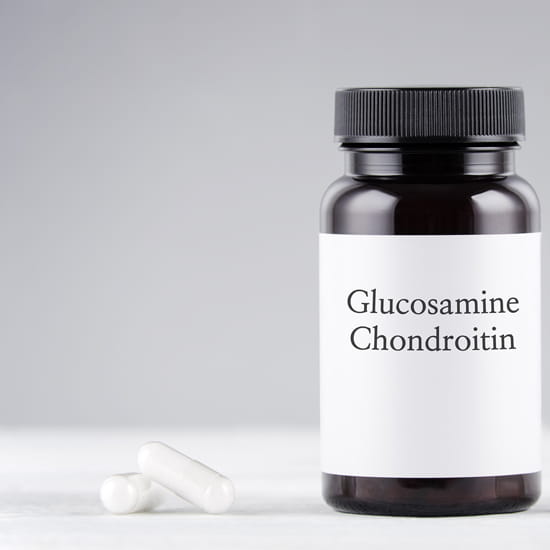
Published December 17, 2020
In the article below, I review a recent article published in the Journal of the American Board of Family Medicine which asks the question: does glucosamine and chondroitin use in patients improve cardiovascular disease and morality outcomes?
Title: Glucosamine/Chondroitin Associated with Lower All Cause & CV Mortality Risk
Reference: Journal of the American Board of Family Medicine Nov 2020, 33 (6) 842-847; DOI:10.3122/jabfm.2020.06.200110
Study Summary: This is an observational study comparing glucosamine and chondroitin use in patients without CV disease and mortality outcomes. After adjustment for age, sex, race, education, smoking status, and physical activity, multivariable-adjusted HR found the hazard ratio for all-cause mortality was reduced (HR = 0.73; 95% CI, 0.57–0.93) as was CVD mortality (HR = 0.42; 95% CI, 0.23–0.75).
Discussion: Those who took glucosamine and chondroitin were more likely to be older, white, had a high school or higher education, were non-smokers, and exercised more than those who did not take glucosamine and chondroitin. The analysis adjusted for those factors, but there could be something related to those issues that may have biased the outcome; maybe those who took the supplement were in settings that had cleaner air, better access to healthy food, or some other social determinant of health that was unaccounted for.
Why glucosamine and chondroitin? Wasn’t this theorized to slow osteoarthritis knee pain? There is data showing this combination lowers C-reactive protein, which implies it causes some decrease in inflammation, which may relate to coronary artery inflammation. It was also found to lower LDL levels. But the clinical significance has not been proven in trials.
How much glucosamine and chondroitin should people take? This study did not look to identify how much, but rather used the intermediate outcome of taking it for one year or more. Dosages in popular supplements generally recommend 1,500 mg of glucosamine and 1,200 mg of chondroitin (per their labels), but since these are unregulated supplements, there is no way to know how accurate those numbers are.
This is a cohort study; thus cause/effect cannot be concluded. All we can say for this correlation is: for those who took this combination, the risk was lowered. To use the old analogy, when it snows, there are less deaths from shark bites. It is not the snow that prevents those deaths, but rather the presence of winter that keeps people out of shark infested waters.
BUT there is no recognized harm from glucosamine and chondroitin supplement, besides cost. If patients want to try it, I would emphasize that nothing lowers their risks of CV and all-cause mortality like exercise. I recommend at least 8,000 steps per day and resistance training 20 minutes per day, 3 times a week.
Conclusions: For healthy adults, taking glucosamine and chondroitin may help lower mortality risks.
Stats Refresher: This cohort study reported a hazard ratio, which is similar to a relative risk. When a study is done over a given time period, it reports the relative risk (incidence of an outcome in one population divided by the incidence in the other population). When there is not a time of intervention, you can estimate the relative risk at any given point in time; this is the hazard ratio.
Overall, these data are interesting, though they are not conclusive. Importantly, they add another layer to the discussion of glucosamine and chondroitin supplementation and cardiovascular risk.
Dr. Frank Domino, MD, is a Professor of Family Medicine and Community Health at the University of Massachusetts Medical School, Worcester, MA. The views expressed in this post are his own and are not reflective of views held by Pri-Med.